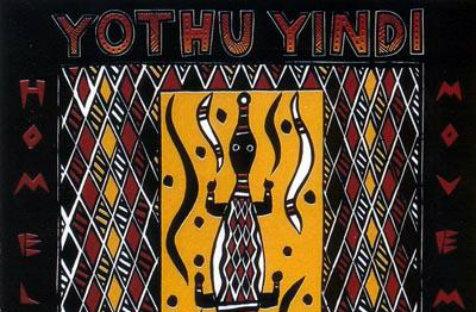Was the media’s failure to report appropriately about the death of Mr Yunupingu ignorance or disregard for Indigenous culture?
News of the death of the frontman of groundbreaking Australian band Yothu Yindi, was announced early Monday. He was a former Australian of the Year, a high profile performing artist and a prominent Indigenous spokesman so his death was inevitably important news.
Stories quickly appeared online and in radio and television news bulletins, as the media moved with their usual speed to report the passing of a significant Australian.
By midday, statements from the deceased’s family had begun to circulate on social media and via email, requesting that Yunupingu’s full name and image not be used by the media, in keeping with Yolngu custom.
But television news broadcasts, print media, and online news outlets including the ABC’s news homepage, news.com.au’s homepage, and The Australian website were all responsible for publishing the deceased’s name and image, as detailed in this news report by media and advertising monitor Mumbrella.
Some media outlets, such as Fairfax, quickly moved to amend their reports so as not to minimise offence. Others did not. Throughout the rest of the day, various media outlets published and broadcast the dead man’s first name, together with his photograph and/or video footage of him, causing significant offence to his extended family and exacerbating their grief by doing so.
Indigenous taboos regarding naming and depicting the recently deceased vary across Australia’s diverse Aboriginal and Torres Strait Islander communities but the existence of such taboos among some communities is by now relatively well known – especially by those of us working in the media. SBS and ABC TV programs – such as the current series Whitlam: The Power and the Passion carry warnings to Aboriginal and Torres Strait Islander viewers that programs may depict images of the deceased. So why did so many experienced members of the media fail to respect established cultural traditions in this instance?
In some cases it was no doubt due to the speed with which stories were generated. Journalists are trained to break stories, to be first with the news; in their eagerness to generate content reporting the death of Yunupingu’s death, perhaps some of the journalists involved forgot about following Indigenous protocol, or forgot to double-check what would be appropriate reportage under the circumstances. But surely getting the story right – which in this instance includes respecting the traditions of the culture you are reporting on – is just as important as being first with the news?
Here at ArtsHub, questions were asked about Indigenous protocols at our Monday morning editorial conference as soon as the news of Yunupingu’s death was raised at that meeting.
If we could remember to ask about Indigenous protocols in the heat of the moment, why couldn’t other, better-resourced newsrooms?
The answer may be because such newsrooms are ignorant of Indigenous protocols. But, worse, maybe some news outlets are aware of them but just don’t think that they’re important.
The death of Yothu Yindi’s lead singer and the flurry of media reports which surrounded it came soon after another media storm, this time focussed around the racism experienced by AFL footballer Adam Goodes, including a casually racist utterance made by an experienced media personality who should have known better, Channel Nine personality Eddie McGuire.
McGuire’s comment about Goodes went to the heart of racism in this country; it reminded us that racist attitudes are widely held, and racist comments so commonly made that many people don’t even think of such utterances as being racist, even though they clearly are, and are capable of causing great hurt and offence.
Equally, to dismiss Indigenous protocols around the depictions of the recently deceased as being unimportant, or of lesser importance than the fact of being first with the story, suggests that such casual racism is, sadly, alive and well in the Australian media landscape.
In the words of his own family, the late Yunupingu ‘devoted his life to reconciling the different peoples of this nation … He was an inspirational Yolngu intellectual who ignored barriers and found a way for people to work together’.
It seems he continues to educate us today, even from the grave.





